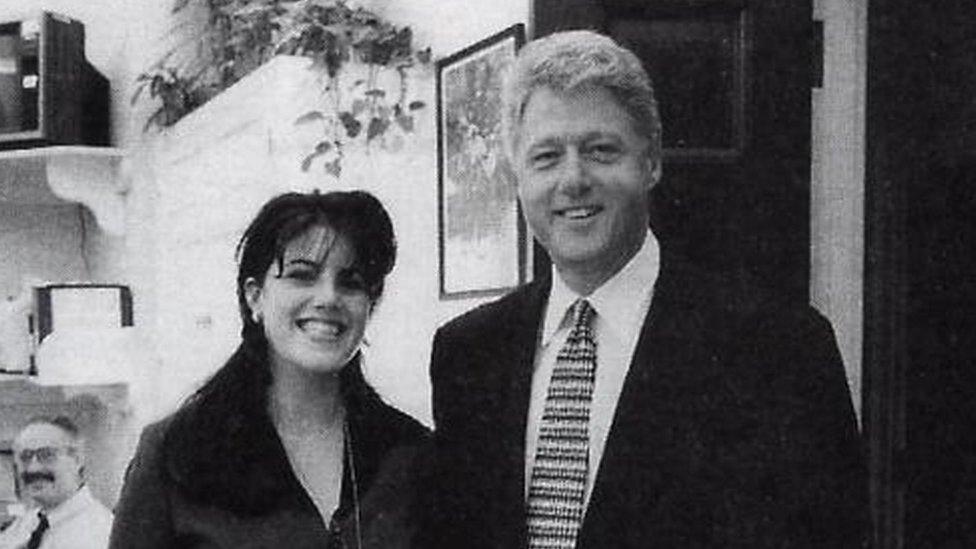Hollie McNish: The things new mothers aren't always told
- Published
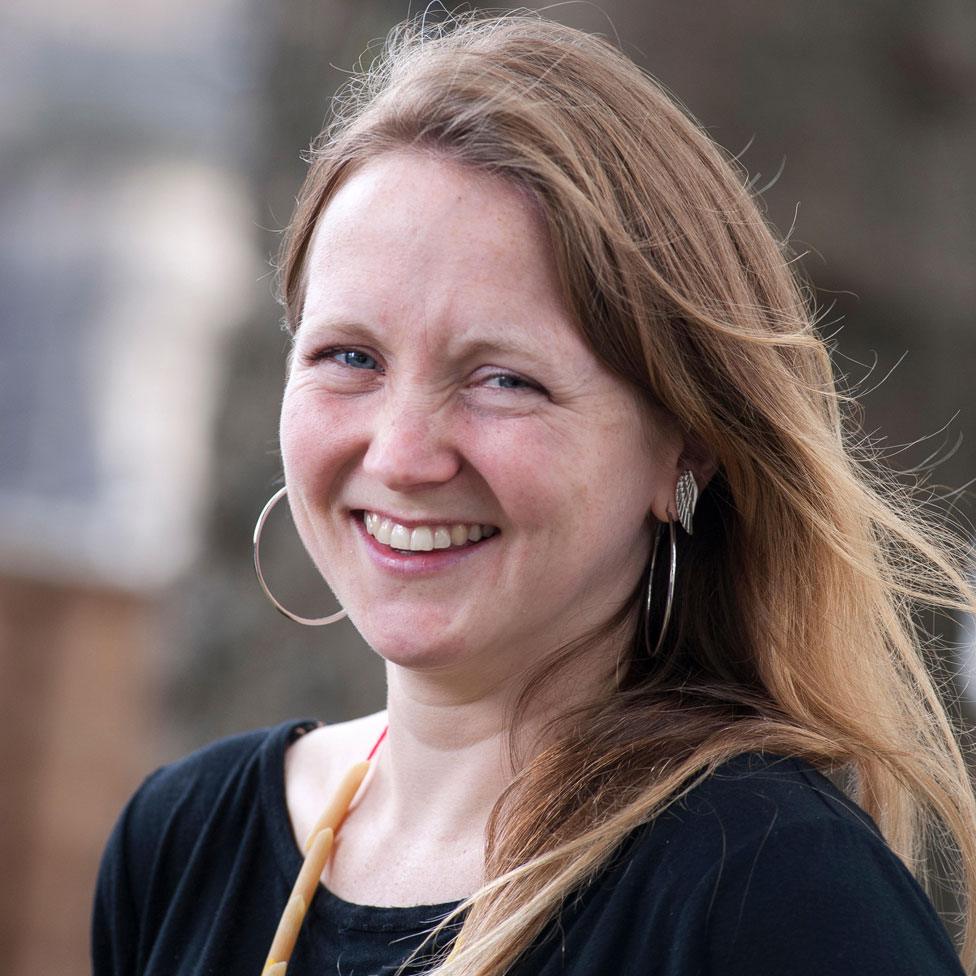
Hollie McNish is a poet who writes about motherhood - from morning sickness and breastfeeding in public to the impossibility of ever finishing a hot cup of tea. Here she argues that taboos still prevent people talking openly about childbirth and bringing up a child.
Until she gave birth to her third baby, my now 90-year-old grandma thought that her first two children might perhaps have been born out of her bottom.
Last week when I interviewed her for a new series on Woman's Hour, on Radio 4, she told me the story again but followed it up this time with a rather worried, "Of course you won't want to say that on the BBC."
I think what she meant was: "Please don't put that on the radio for my bridge club friends to hear."
The first time the subject came up was when I was pregnant. I think I was complaining about how little people had warned me about the heap of (negative) emotions, sickness and pains that can be related to growing a small child inside your body.
When she said the words "born out of my bottom" I almost spat out the tea she always makes me before we sit down on the two armchairs in her lounge to chat.
I asked her to tell me the story again after I had given birth to my daughter.
I was by then even more interested in (and fairly angry about) the taboos still surrounding motherhood - from those emotional highs and lows so often veiled in the perfect "falling in love" birth story to issues surrounding sex, the mother's body, loneliness and claustrophobia, which all remain heaped under photos of clean white sofas, white linen shirts and the standard images of white upper middle class families walking down a beach with a very shiny coated labrador.

Find out more
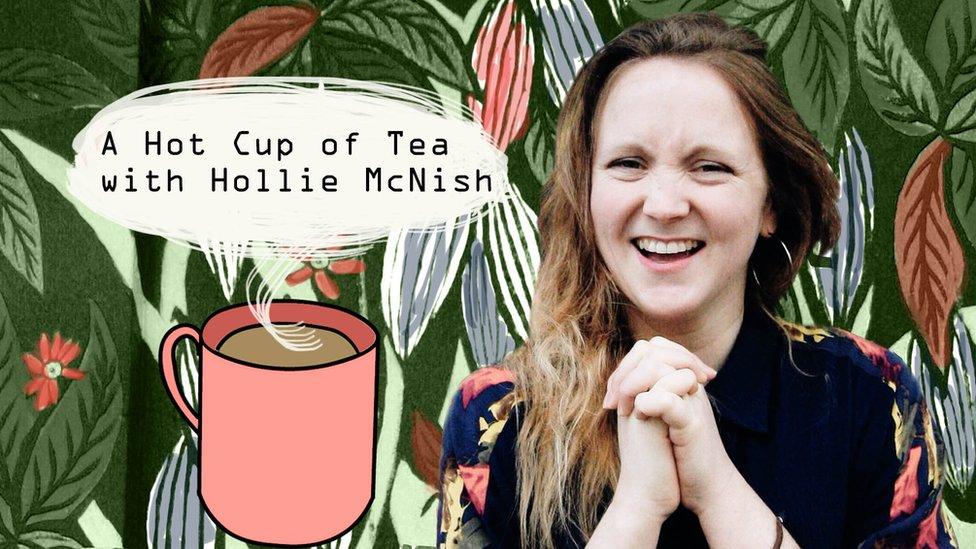

After having given birth myself, I was shocked and a little saddened by the idea that any woman could be told so little about where the baby would emerge from. True, when giving birth, I was also told to "push through my bum" and it did kind of feel like that. But having received swarms of other info surrounding the whole event (I can't think of a better word) there was no way I could actually have made this mistake.
So when I was asked to spend two months interviewing mothers and fathers about their experiences of having and bringing up children, I almost begged to be allowed to interview my gran - to have a cup of tea as we always do and sit on those two reclining chairs, just this time with a microphone in our faces.
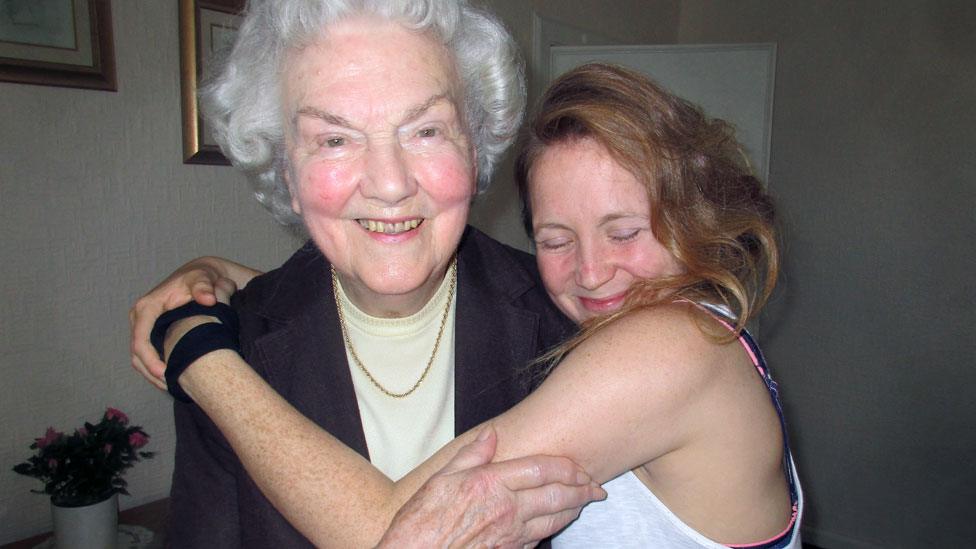
Extremely nervous at first, she soon eased into it, constantly apologising for the "crudeness" and "vulgarity" of what she was talking about. The bum story was one of myriad things that, it seems, she had been wanting to get off her chest for the last 65 years.
Though funny at first, the tale became increasingly sad. My grandma didn't know about birth because nobody would tell her. And nobody would tell her, she said, because it was deemed too vulgar a subject for anyone to talk about. She didn't ask any questions for the same reason. It was "unladylike".
Hollie McNish reads I Lie
"But what about the post-birth bleeding?" I asked her. She couldn't tell anyone about that either. For the sake of my granddad and everyone else's embarrassment, she had to pretend that these things just didn't happen, and get on with raising babies and children while smiling politely, dressed each day in neat matching two-piece suits and rollered hair. No blood. I remember vividly when I was a teenager asking my mum why my granddad, who I got on with so well, kept randomly leaving the room when the telly was on. "He doesn't want to see the sanitary towel ads," she said. I laughed then too.
I had always put these differences down to our age. Grandma gave birth 70 years ago. No blood was mentioned and the word "vagina" was almost sinful to even think about. But things have changed, I thought. My daughter is now six and will run around my grandma's lounge singing the word unashamedly, as my gran cringes into her tea saying things like "I suppose it is better really that she's more open. But, oh..." I'm in the middle, neither as open as my daughter or as guarded as my grandmother.
After my grandma's interview, I then spent two months travelling from flat to house to hostel interviewing other parents whose stories I also consider to be largely untold - totally hidden really from any media view of motherhood or parenting. I'm now convinced that this is one of the biggest and most damaging taboos we have - not just a taboo for previous generations, but one that still exists today.
Hollie McNish reads Opposite Man
The second interview I did was with two brilliant young women, one with a baby, one a toddler. Both of them were pregnant at school and spoke brutally honestly about how much they had felt the need to hide their changing bodies from other students. Fingers pointed at their rising bellies, they told me, people refused even to give one of them the "reserved for pregnant" seat on the local buses. A lot of support too but a lot of trauma on top.
They both spoke of the baggy jumpers they had started wearing to hide themselves in. I thought immediately of my grandma, who had sent me cardigans to "cover my bump" when I was pregnant. I thought of the baggy clothes she had used to cover hers. She has told me so often how a pregnant body was not something people thought "ought to be seen in public". Scrolling the internet world of glamorous motherhood, of bump-clinging dresses and celebratory instagrams, it can sometimes seem the discomfort is gone. I don't think that's the case.
Next, were the breastfeeding stories. Not the physical problems some face, but the social and cultural attitudes towards breasts that still caused such anxiety for these and so many other younger mums I have chatted to. Again, I thought of my grandma, who never breastfed in front of anyone. "Oh no, never," she stressed.
Nearing the end of our chat, Chante, the first young mum I interviewed, told me that she'd asked the health worker if she could have the baby through her bottom. She said she just didn't know if it was possible or not. We both giggled and I told her about my gran.
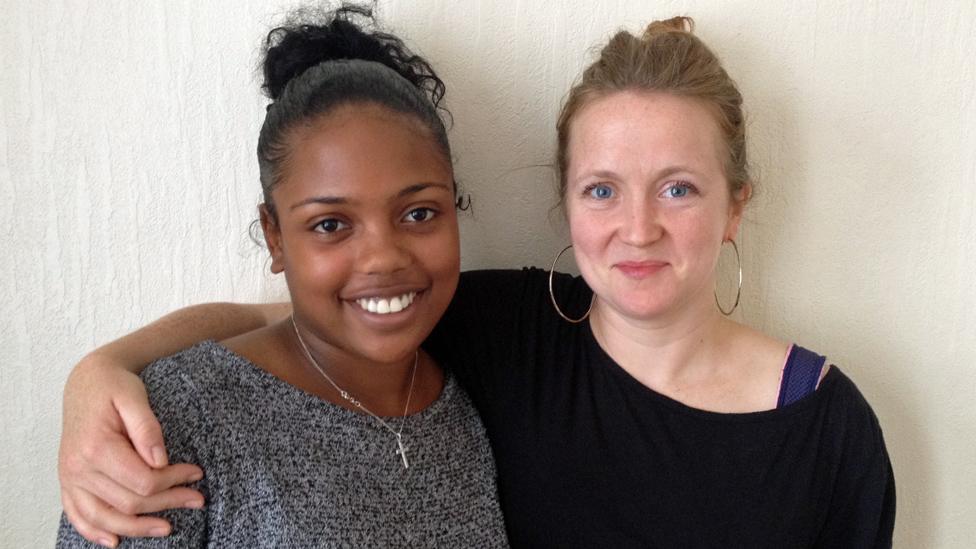
Chante and Hollie
For the next two months, stories flooded out as I sipped tea and listened. So many voices so ignored in the "motherhood media".
I have learned what it is like to be housed as a new mum on the fourth floor of a block of flats, forced to pull a buggy up and down stairs and share a dirty communal bathroom.
I have heard the thoughts of a new mum as she stood on the roof of her house attempting to end her own life, after she was able to discharge herself from hospital despite telling doctors she had "racing thoughts" and felt psychotic.
I have chatted about the school run with a mother who had to leave Sri Lanka and found herself in a country in which she couldn't speak the language or recognise the food and was afraid to leave her flat.
I have listened to the fears of a new dad nervous about disobeying his mother's parenting ideas.
From a 17-year-old on the outskirts of London, to a 90-year old on the edge of Glasgow, I have learned that this is not just a generational matter. Motherhood, parenthood, is still a great taboo that I think we need to talk about a lot more, and we should do it with complete honesty. Preferably over a hot cup of tea.
Listen to Becoming a Mother – a hot cup of tea with Hollie McNish
Join the conversation - find us on Facebook, external, Instagram, external, Snapchat , externaland Twitter, external
Related topics
- Published10 October 2016
